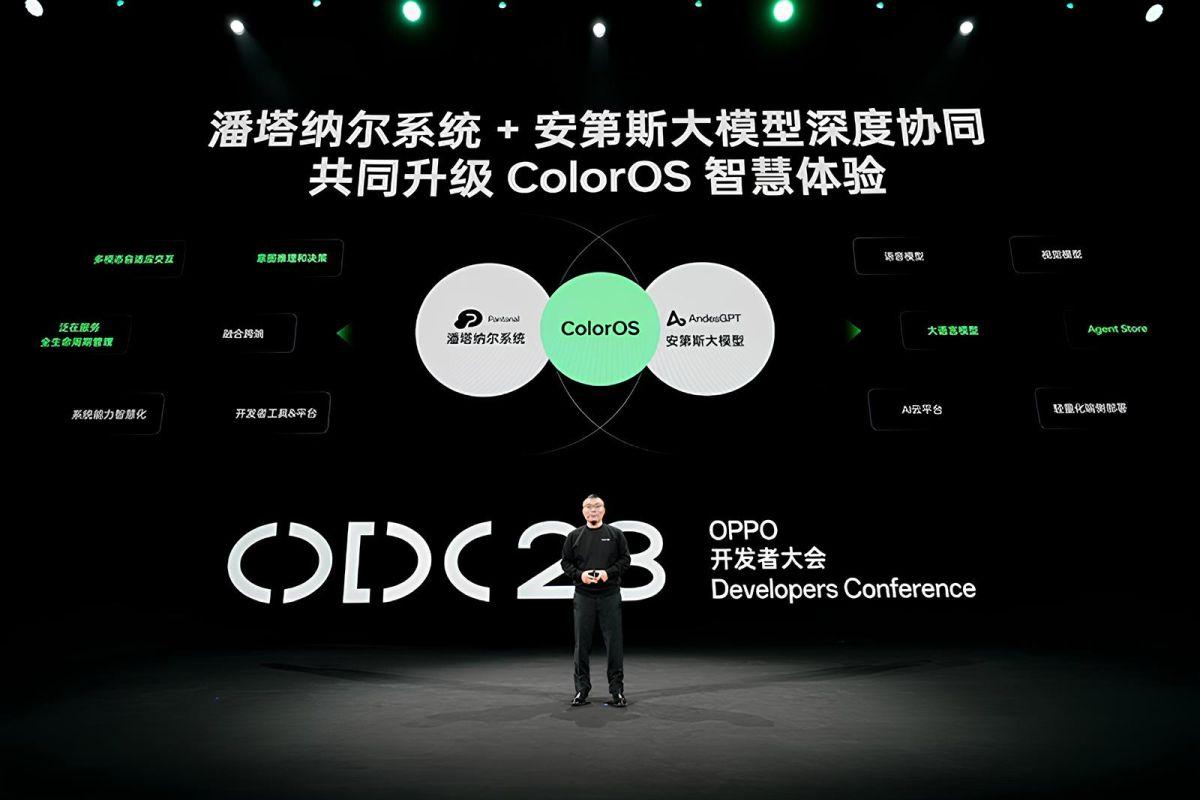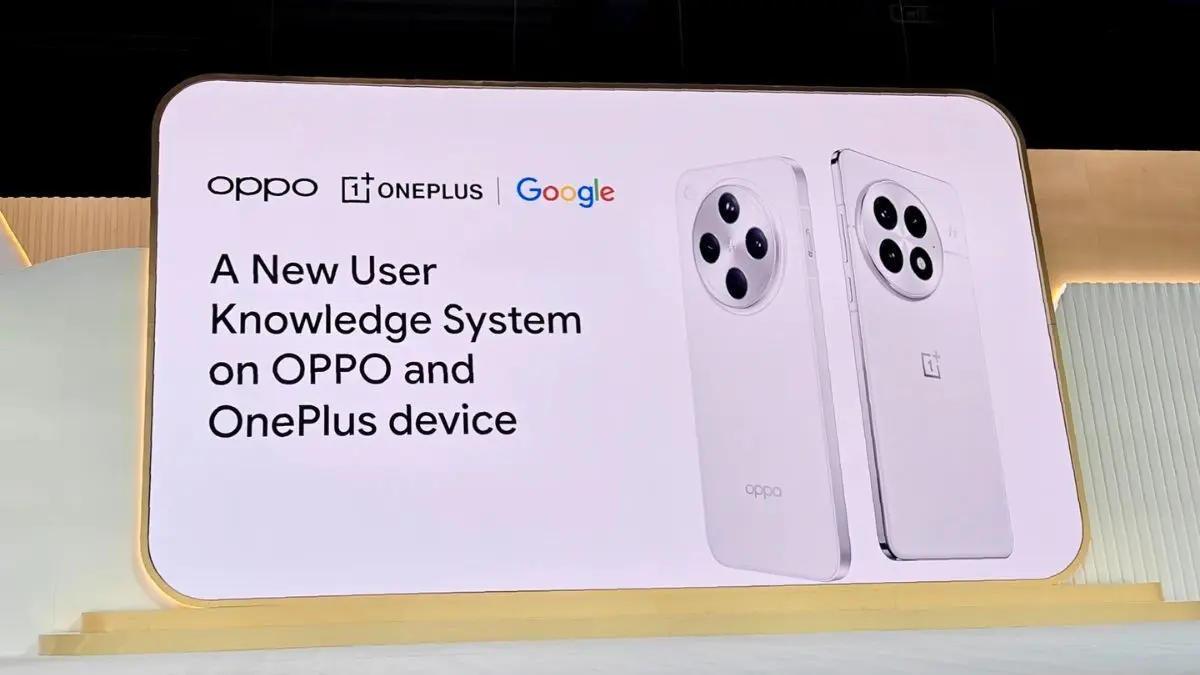Oppo Revolutionizes Customer Support with AI-Powered AndesGPT
3 Sources
3 Sources
[1]
Oppo is now using its own AI to power its global customer support
Oppo has integrated its proprietary large language model (LLM), AndesGPT, into its after-sales customer support system, which currently operates in 20 countries and regions and supports 13 languages, providing enhanced service accessibility. This upgraded system functions continuously, offering prompt responses outside standard working hours and during holidays. Oppo additionally operates an AI-driven service via WhatsApp in 13 distinct markets. Currently, 60% of Oppo's global user base has access to this AI-powered system. The company aims to expand this accessibility to 21 markets and integrate it with additional online platforms, including Facebook, Line, and Zalo, by the close of the current year. The system's operational process involves three stages. Initially, it employs AI semantic recognition to ascertain the user's intent. Subsequently, intelligent routing determines whether the request can be resolved autonomously by the AI or if it necessitates intervention from a human operator. Finally, the system communicates with the user, providing a direct answer or informing them that human assistance will be required. The implementation of AI has resulted in a 40% reduction in the workload of human operators. This efficiency gain allows human staff to concentrate on more complex issues that the AI is not equipped to handle independently. Oppo has established specialized teams within key markets. These teams are responsible for developing regional knowledge bases, fine-tuning the AndesGPT model, and gathering user feedback to inform future system enhancements. The company intends to extend its next-generation AI services to encompass offline use cases. Future applications projected for integration include Retrieval-Augmented Generation (RAG), a method designed to improve AI response accuracy by cross-referencing relevant data sources rather than solely relying on the model's training data. Email response assistants and intelligent queuing systems are also among the planned future developments. Samuel Fang, Head of Global After-Sales Services at Oppo, stated, "We have already used AI to empower customer service capabilities across the organization, including R&D, customer experiences, and business operations. Now, through the evolution of AI agent technologies, we are transforming our customer services from a reactive to proactive approach that creates a more efficient, thoughtful, and intelligent service experience for OPPO users."
[2]
Oppo AI customer service goes global with 24/7 support - Phandroid
Oppo AI customer service is no longer just a pilot project. The company has rolled out its AndesGPT-powered support system to 20 countries and regions, supporting 13 languages and operating 24/7. That means you can get help outside office hours, on weekends, or during holidays without waiting. The system works by first understanding your request using AI-powered semantic recognition. Then it decides whether it can handle it or if it needs to escalate to a human. This smarter routing has already cut human workload by 40%, which lets staff focus on more complicated issues. Oppo also runs its AI customer support via WhatsApp in 13 markets. Apparently this is a first in the industry. It plans to expand this to 21 countries and new platforms like Facebook, Line, and Zalo by year's end. Unlike basic scripted bots, Oppo is fine-tuning AndesGPT for each region using local teams. They're building regional knowledge bases and collecting feedback to improve accuracy and relevance. Oppo isn't stopping there. It's testing Retrieval-Augmented Generation (RAG) to improve the quality of AI responses using real-time data. Other planned features include AI-powered email replies and smart queue systems to further reduce wait times.
[3]
Oppo Is Reportedly Adding AI Capabilities to Its Customer Support System
The company has also launched AI customer service on WhatsApp Oppo has reportedly integrated artificial intelligence (AI) technology into its after-sales service system. According to a report, the Chinese smartphone brand has deployed its in-house AI model, AndesGPT, to its customer support service. The company is said to have enabled the AI integration to help users to get quick responses from the company even during off-hours and on holidays. At the same time, Oppo claims that the system is also reducing the workload of the company's human operators. GSMArena reports that the smartphone brand is introducing AI-powered chatbots to its customer support system. These chatbots are powered by Oppo's AndesGPT AI model, and they are said to be operational across 20 countries and regions. These chatbots reportedly support 13 different languages, including Chinese, English, Japanese, and Indonesian. Unlike human operators, these chatbots can continue to function 24/7 and ensure that users get quick responses even during non-working hours and on holidays. The report mentions that the smartphone brand currently serves 60 percent of its user base with this technology, and plans to expand it to 21 additional markets. Apart from this, the smartphone maker is said to bring its customer support system to other online platforms such as Facebook, Like, and Zalo. Oppo's after-sales service is already available via WhatsApp in 13 different countries. Explaining the AI-powered system, the company reportedly highlighted that there are three stages in total. First, the AI-powered chatbots are said to use semantic recognition to gain contextual awareness and intent of the user's query. Then, via "intelligent routing," the system decides if this problem can be handled by AI or requires the expertise of a human operator, as per the report. At the third stage, the chatbot is said to either respond to the user with a solution or ask them to wait till a human operator becomes available. All of these stages reportedly occur within seconds. Oppo claims that the integration of AI into its after-sales service has resulted in up to a 40 percent reduction in workload for human operators. It allows "them to focus on more complex issues that require human expertise," the company was quoted as saying. In the future, the Chinese brand is said to be planning to expand its AI services in offline scenarios as well.
Share
Share
Copy Link
Oppo integrates its proprietary AI model, AndesGPT, into its global customer support system, offering 24/7 service in multiple languages and reducing human workload by 40%.
Oppo Introduces AI-Powered Global Customer Support
Chinese smartphone manufacturer Oppo has taken a significant leap in customer service by integrating its proprietary large language model (LLM), AndesGPT, into its after-sales support system. This AI-driven initiative is now operational in 20 countries and regions, supporting 13 languages, and providing enhanced service accessibility to users worldwide
1
.
Source: Gadgets 360
24/7 Support and Multilingual Capabilities
The newly upgraded system operates continuously, offering prompt responses outside standard working hours and during holidays. This round-the-clock availability ensures that Oppo users can receive assistance at any time, significantly improving the customer experience
2
.AI-Driven Process and Efficiency Gains
Oppo's AI-powered customer support system follows a three-stage process:
- AI semantic recognition to determine user intent
- Intelligent routing to decide between AI resolution or human intervention
- Communication with the user, providing direct answers or informing of human assistance
This intelligent system has resulted in a 40% reduction in human operator workload, allowing staff to focus on more complex issues that require human expertise
1
.Expansion Plans and Platform Integration
Currently, 60% of Oppo's global user base has access to this AI-powered system. The company aims to expand this accessibility to 21 markets by the end of the year. Additionally, Oppo operates an AI-driven service via WhatsApp in 13 distinct markets, with plans to integrate with other online platforms such as Facebook, Line, and Zalo
3
.
Source: Dataconomy
Related Stories
Regional Customization and Future Developments
Oppo has established specialized teams within key markets responsible for developing regional knowledge bases and fine-tuning the AndesGPT model. This approach ensures that the AI system is tailored to local needs and preferences, improving accuracy and relevance
2
.Looking ahead, Oppo plans to extend its next-generation AI services to offline scenarios and implement advanced features such as:
- Retrieval-Augmented Generation (RAG) to improve AI response accuracy
- Email response assistants
- Intelligent queuing systems
Industry Impact and Company Vision

Source: Phandroid
Samuel Fang, Head of Global After-Sales Services at Oppo, emphasized the company's commitment to AI-driven customer service: "We have already used AI to empower customer service capabilities across the organization, including R&D, customer experiences, and business operations. Now, through the evolution of AI agent technologies, we are transforming our customer services from a reactive to proactive approach that creates a more efficient, thoughtful, and intelligent service experience for OPPO users"
1
.This innovative approach to customer support showcases Oppo's dedication to leveraging AI technology to enhance user experience and operational efficiency, potentially setting a new standard in the smartphone industry for after-sales service.
References
Summarized by
Navi
Related Stories
Recent Highlights
1
ByteDance's Seedance 2.0 AI video generator triggers copyright infringement battle with Hollywood
Policy and Regulation

2
Demis Hassabis predicts AGI in 5-8 years, sees new golden era transforming medicine and science
Technology

3
Nvidia and Meta forge massive chip deal as computing power demands reshape AI infrastructure
Technology








